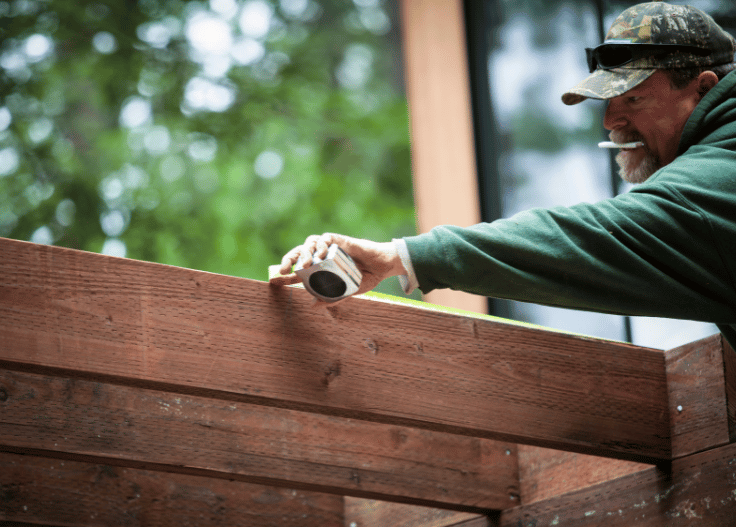Home Inspection Checklist: What does a home inspector look for?
Updated August 30, 2024 | Published April 17, 2023 by Angela Talbot
-
Categories:
- Home Lending

You put in an offer on a house and it was accepted! Now that you’ll soon be owning a home, it’s important to have an inspector perform a home inspection so you can know exactly what you’re in for. Your home inspector will look at all areas of the house, interior and exterior, for any problems or risks.
When do you get a home inspection?
A home inspector is typically hired right after the offer to purchase is signed, and before the appraisal is ordered. Before signing your offer to purchase, you’ll want to make sure there is an inspection clause in the offer. An inspection clause typically states the purchase is contingent upon the findings of the inspection. This way, if the inspector finds something that you are uncomfortable taking on, you can back out of the sale and still keep any deposit/earnest money that you put down. Without an inspection clause, you may lose your deposit to the seller if you decide to back out of the deal.
Where do I find a home inspector?
If you are working with an experienced realtor or real estate agent, they will presumably have connections with inspectors that they frequently work with, and can recommend one to you. Another way to find an inspector is by searching the Division of Professional Licensure website, or searching “home inspector” and your zip code on the web to find one nearby. If you have friends or family who have used home inspectors before, they could also be a good referral source for you.
How much does a home inspection cost?
In the state of Massachusetts, the average home inspection cost ranges from $300 to $600 and can depend on the square footage of your home. Home inspections are typically paid for out of pocket and not included in the closing costs or mortgage balance.
What happens during the inspection?
Your inspector will look at the exterior and interior of the house and land, then generate an inspection report with their findings. It is recommended you be present for the inspection. This way, the inspector can show you what they are writing about in their report and you can ask any questions they might not have answered otherwise. If you aren’t familiar with the terms used to describe certain parts of a house, then it is also important to be there so that they can explain what those mean. A great inspector will check the house for termites or other wood destroying bugs, but if they do not you can hire a pest inspector to look for that.
Home inspection checklist
Some things the inspector should be checking include but aren’t limited to:
- Condition of the foundation
- Condition of the roof
- Condition of the siding
- Condition of brick
- Condition of wood – no rot or mold
- Water drainage is away from the house
- Any evidence of water damage in the basement or attic
- Windows and doors are straight
- Dead trees close to the house that might fall on it
- Condition of plumbing under sinks
- Visible pipes have no leaks or damage
- Water heater works properly – water gets hot and has adequate pressure
- Toilet flushes and fills properly
- Water in sinks and tubs drains properly
- Structurally sound with no cracks in walls or ceiling
- Electrical wiring is in good condition and all outlets work
- No exposed electrical splices
- Breaker or fuse box works and is labeled
- Smoke detectors and carbon monoxide detectors work
- Heat and air conditioning work properly with clean filters
- Chimney flues have no open seams or rust
- HVAC system works and is clean
- Age of any furnace, boiler, water heater, or oil tank
What won’t a home inspector check?
There a handful of things that require a separate inspection by an inspector with a certification in that field. Those include:
- Lead Inspectors – will search your house for lead paint
- Water Quality Inspector – will test your water to see if it’s drinkable and meeting legal standards for pollutants
- Pest Inspector – will search your house for wood destroying insects, such as termites
- Air Quality Inspector – will test your air for pollutants including radon gases
- Mold Inspector – will test your house for fungi, mold, and allergens
While a home inspection is not mandatory, it is highly recommended – especially if you are a first time home buyer. Most often, when inspections are waived, it is because the seller and buyer agree that they want to close on the sale quickly. If you as the buyer want an inspection and the seller is pushing to skip it, there is likely a major problem with the house the seller wants to hide. If they do not disclose that to you, the only way to find out is to have an inspection.
Source: https://www.mass.gov/doc/home-inspectors-consumer-fact-sheet-0